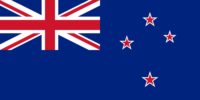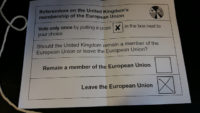The novel foods discussion in Europe is a thorny one- and further one very misunderstood by natives, let alone those who would take Europe by canna storm. Within Europe, this discussion has festered and percolated for the better part of two years. Last year, despite a huge bump in sales in certain regions (see Switzerland), police were directly involved on the ground in Spain and rumblings of the same possibility took place in Austria at the end of the year. Early this year, further indecision at the EU level has continued to confuse the entire discussion.
This year, while there have been recent blow-ups in the UK, and fights at the EU level, the main action has been in the DACH region of the EU. The DACH trading alliance includes Germany, Switzerland and Austria.
In fact, the debate in this region of the world may drive not only European but UN policy. For that reason, the road currently is a thorny one, with lots of drama shaking out along the way in policy fights that still, at least in many European countries, involve the fuzz and what has been ostensibly packaged and labelled as “health food.”
It is for that reason that the most recent move by the German Federal Office of Consumer Protection and Food Safety (or BVL), which said that CBD should not be sold in food at all, has gotten all the attention lately. Especially and more worrying for the nascent CBD industry across the continent, the agency also opined that it does not see a case where CBD-containing cannabis would be marketable in foods or health supplements.
 Last month, on April 11, the European Industrial Hemp Association (IEHA) issued a sharp rebuttal to the same. As they have just been asked to serve in an advisory role in setting EU regulations on novel foods and hemp extracts, this is likely to move the conversation forward regionally. Including in the DACH region where this issue is all over the place.
Last month, on April 11, the European Industrial Hemp Association (IEHA) issued a sharp rebuttal to the same. As they have just been asked to serve in an advisory role in setting EU regulations on novel foods and hemp extracts, this is likely to move the conversation forward regionally. Including in the DACH region where this issue is all over the place.
What Exactly Does Novel Foods Regulation Cover?
Novel Foods regulation in Europe covers two things, and this is true far from cannabis. It is consumer rights legislation and guidelines that cover all plant-based food and supplements across the continent. It also covers beauty products (since the skin is the body’s largest external organ) although so far, this tiny part of a niche industry has largely escaped attention. Do not expect that to last.
Where this crosses with cannabis is an interesting discussion. Hemp and cannabis of course have been consumed in Europe for thousands of years. As such, food and extracts of the plant, from species that occur naturally here, normally would not raise a fuss. However, this discussion has also become complicated for a few reasons. Starting with the fact that the seeds and strains now being developed in the U.S. and Canada are not “native” to the European region.
In fact, the early exports across the Atlantic (and there have now been a few) are all on the hemp side of the equation. Currently hemp is the only plant containing CBD that is recognized as viable under novel foods. Cannabis sativa strains that are low in THC are where this whole discussion gets dodgy. The strain, Girl Scout Cookies, and its contents including CBD for example, would under this regime, never be allowed. Nor would cannabis strains bred for their low THC in the United States.
The second issue is how such plants are processed and the cannabinoids extracted. That is another issue that directly relates to how concentrates, tinctures and extracts are made in the first place. This is also in the room.
But that is also where the entire debate also spins off into other semantic hair-splitting that the industry so far has found not only tedious but largely impenetrable.
Why Is The German Announcement So Cynical?
Germany is following its DACH neighbour Austria to directly put the brakes on the CBD and THC discussion across the border with Switzerland. In contrast to its Teutonic trading partners, the Swiss have been experimenting with all kinds of CBD products, from all sorts of sources, and are now talking THC recreational trials (even if sold out of pharmacies).

In contrast, over the last six months, both Germany and Austria have come out with statements and official pronouncements not about hemp, per se, but rather CBD- a cannabinoid found in all instances of both hemp and cannabis sativa. While politically this might send a statement that both countries are not ready to engage the cannabis debate on the next level (beyond medical in other words), scientifically of course, this is a silly argument to make. A cannabinoid is a chemical compound that acts the same whether it comes from cannabis, hemp or synthetic sources (see the synthetic dronabinol).
In the meantime, CBD itself has not been declared a “novel food.” In other words, for all the legal regulatory “brakes” and excuses, the dust is starting to clear on the debate as both regional and international bodies finally take on the entire cannabis discussion, albeit in a plodding, multi-year way. That, however, is undeniably under way at this juncture.
In the meantime, look for political grandstanding about every cannabinoid under the sun and further such drama will not abate even with “recreational” reform. Even when Europe accepts full boat regulated, recreational, novel food regulation will still be in the room. Even if politicians no longer play games with individual cannabinoids.
That said, at this point, that is also unlikely. In other words, expect the battle on the novel food front to continue for the entire industry, and shift, when recreational comes, to merely another cannabinoid, unless policy makers address the bottom-line issues now.











 In the meantime, however, what this also does is place one of the world’s largest cannabis companies in the middle of what is largely seen as the world’s most valuable overall cannabis market. Further it does so in an environment where the company benefits from Acreage’s considerable market and political clout. Former speaker of the U.S. House of Representatives John Boehner (a fierce opponent of legalization until it was personally convenient and profitable) is on the board of Acreage.
In the meantime, however, what this also does is place one of the world’s largest cannabis companies in the middle of what is largely seen as the world’s most valuable overall cannabis market. Further it does so in an environment where the company benefits from Acreage’s considerable market and political clout. Former speaker of the U.S. House of Representatives John Boehner (a fierce opponent of legalization until it was personally convenient and profitable) is on the board of Acreage.














